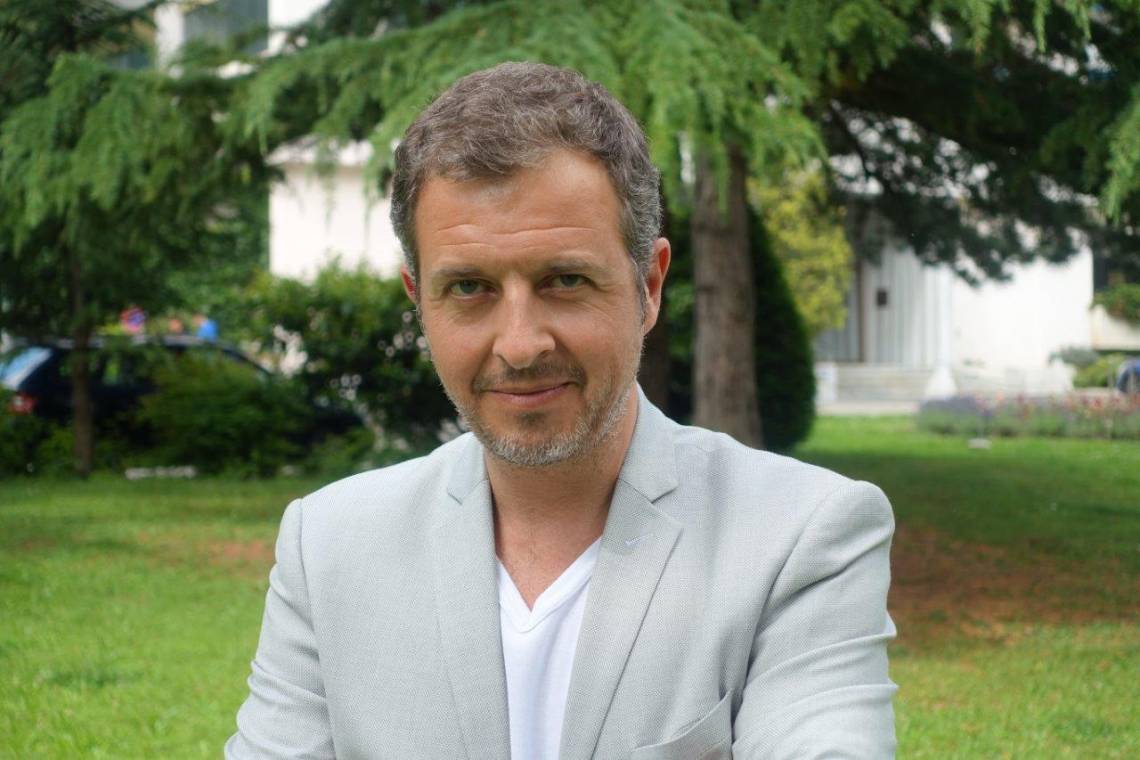Michel Beuret, a Swiss journalist and reporter with more than 20 years of experience in television and print, has joined Fondation Hirondelle in June 2018, becoming its new Head of Editorial Content. We discussed with him about his background and his experience of the role of journalism in crisis contexts.
Can you summarize your career as a journalist, and share some of your memorable experiences ?
I have been a journalist since 1994, mainly on the international scene and on crisis grounds. After 17 years in the Swiss press ("Le Nouveau Quotidien", "Le Temps" and "L'Hebdo"), I made the leap to the audiovisual industry in 2010 as a reporter for the Swiss Public Television (RTS). My background has led me to travel to more than 100 countries. It is a great privilege to be able to navigate, through this profession, in very diverse environments, to witness from the heart of the History, from the conflicts in the Balkans, to Afghanistan, Iraq, Sierra Leone, Sudan, Ivory Coast, Mali, Niger, Colombia, Palestine, Lebanon, Libya, Turkey etc ... Each of these reports is an experience that marks (sometimes harshly), as much as some of the investigations that I have devoted to human trafficking, refugee camps, prostitution, mining, exploitation. In 2005, as a journalist at "L'Hebdo", I had the chance to participate in the creation of the "Bondy Blog", in the midst of the riots in French suburbs. An enriching experience in every way. Created from a simple idea and very few means, the BondyBlog.fr today remains a reference media in France. Similarly, the creation of the book "Chinafrica: Beijing conquers the black continent" (Grasset, 2008, co-written with Serge Michel) shows by its success that an investigation, adventurous, complex, but journalisticaly relevant, can meet its audience. It's good news.
How did you meet Fondation Hirondelle? Why did you want to join it today?
My journalistic debut coincides with the tragic era of the Rwandan genocide and the very creation of the Foundation. As a Swiss journalist, it's impossible to ignore this wonderful project and its founders, including Philippe Dahinden, whom I had the chance to meet. By a chance of life, I remembered recently, that one of the first articles I wrote was devoted to "Radio Hirondelle". The longetivity and rigorous development of its projects, as well as the idea behind the Foundation (contributing to the maintenance of peace by offering unbiased information to an audience facing major trauma), and the training of journalists in the South, all of this could only speak to someone who likes to project elsewhere. Back in Switzerland, after 4 years spent in Paris as a correspondent for the RTS, I wanted to return to more complex contexts in order to contribute to a transmission project in the countries that need it most. This will, if I can say it that way, I've always had it: for more than 10 years, I collaborated at the North-South Media Festival, as well as at the Geneva Film Festival on Human Rights (FIFDH) . In 2018, it seemed to me that the time had come to answer this intimate call. So I happily seized the opportunity of this editorial position, when the opportunity arose.
What challenges do you see in the exercise of journalism in crisis contexts, and what role do you see for it in these contexts?
"The first casualty of War is Truth". This phrase often comes back to my mind. What would we do, us who fortunately have never known war, if we were in the situation of all these people lost in a conflict of which they do not see the end? Without reference, without protection, without right, without care? What would we do if we would have to face a deadly famine in a forgotten region of the world? If our children were deprived of school for years, as I saw in Afghanistan, in some FARC areas in Colombia or today in Syria? How would we react if, as I saw in Sierra Leone, the man who cut your forearms with a machete lived with impunity in your neighborhood? How to fix, how to repair when you are in mourning or when you have been raped? How to start the essential resilience? I remember, at the fall of Timbuktu, these women raped under the occupation, who ended up confiding to us, me and my cameraman, two white men, because they had no other person to confide their pain. In countries where education is so lacking, where epidemics and pandemics occur in sometimes inaccessible areas, information is crucial. But the stakes are high because it involves a journalistic culture that is not obvious in countries where the regimes have maintained - and still maintain - ignorance and opacity. Territories where the one who carries a truth is intimidated, imprisoned, tortured and sometimes killed. The challenge to inform impartially in these contexts is to have a media that has the confidence of those who listen to it. To convince all parties of the interest of informing. To contribute to improving the living together, dialogue and understanding of a society, if only to prevent the worst. This involves the training of journalists and newsrooms on the spot, which represents another major, indispendable and exciting issue.
Fondation Hirondelle +41 21 654 20 20
Unsere News
 ©Nicolas Boissez / Fondation Hirondelle
Michel Beuret, Fondation Hirondelle's new Head of Editorial Content.
©Nicolas Boissez / Fondation Hirondelle
Michel Beuret, Fondation Hirondelle's new Head of Editorial Content.
"The challenge of informing impartially": interview with Michel Beuret, our new Head of Editorial Content
Copyright © 2023 Fondation Hirondelle. All Rights Reserved.



